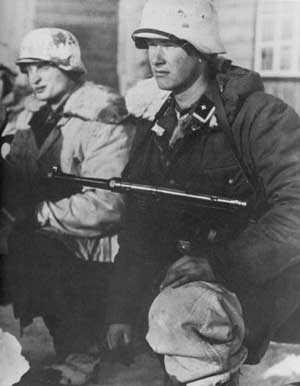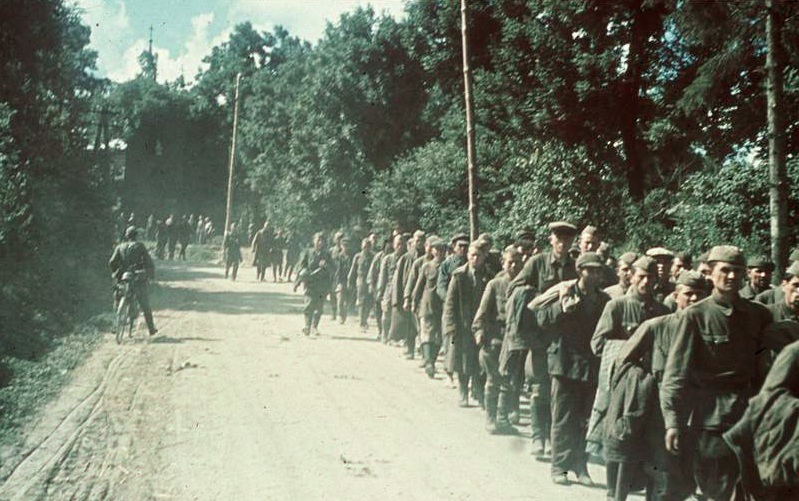more pa sir
grabe jud ni ka intersting
daw ma remember nako akong lolo ani unsay ilang kaagi dah

Results 41 to 50 of 58
-
01-19-2012, 08:19 PM #41
 Re: Retrospective of the Second World War
Re: Retrospective of the Second World War
-
01-19-2012, 10:33 PM #42
-
01-20-2012, 07:20 PM #43Elite Member

- Join Date
- Apr 2010
- Gender

- Posts
- 1,081
 Re: Retrospective of the Second World War
Re: Retrospective of the Second World War
nice thread TS!..

-
05-24-2012, 05:14 PM #44
 Re: Retrospective of the Second World War
Re: Retrospective of the Second World War
^^ ty bro.. ako nani e update.pending naman d i kaau ni.
-
05-26-2012, 12:39 PM #45Banned User

- Join Date
- May 2012
- Gender

- Posts
- 1,464
 Re: Retrospective of the Second World War
Re: Retrospective of the Second World War
I appreciate what you're doing here, Dead. I'll add mine later...
-
05-26-2012, 12:49 PM #46Banned User

- Join Date
- May 2012
- Gender

- Posts
- 1,464
 Re: Retrospective of the Second World War
Re: Retrospective of the Second World War
I'll leave this here for now.
1930's Pre-World War II speeches by Winston Churchill I mashed together concerning the rise of nationalism in Europe and ultimately Nazism. England was at first not interested in joining WWII because of the damaged done in WWI. Churchill however felt it an obligation to fight Nazi Germany.
Last edited by machinecult; 06-22-2012 at 02:40 PM.
-
05-26-2012, 01:01 PM #47Banned User

- Join Date
- May 2012
- Gender

- Posts
- 1,464
 Re: Retrospective of the Second World War
Re: Retrospective of the Second World War
12 May - 28 May 1942 - Second Battle of Kharkov - After the defeat of the first, Soviet leaders plan to retake the city which caused them large casualties and loss of equipment.
*note bullet items are quoted materials from other sources.
- In mid-Mar 1942, Soviet commanders introduced preliminary plans for an offensive toward the Ukrainian city of Kharkov to be led by Marshal Semyon Timoshenko. Troops began to build up in the region for this attack through the beginning of May 1942, and by 11 May, six armies supported by various independent rifle, tank, and cavalry units gathered. The Soviet strength for the offensive was about 640,000 men, supported by 1,500 tanks and 1,000 aircraft. Poor management by front line officers, however, failed to maintain the necessary degree of secrecy, and German intelligence was able to determine that a Soviet offensive was being planned.

Russians mount T-34 in Kharkov Ukraine likely near Dzerzhinsky Square.
- To their west, the German 6th Army under General Friedrich Paulus had also been preparing for an offensive south of Kharkov code named Operation Fridericus; the order for the offensive was given on 30 Apr 1942, calling for the operation to begin around 18 May. Due to the intelligence of a possible Soviet offensive, troops were readied in nearby regions for support should an attack take place. German strength in the general area was about 300,000 men, supported by 1,000 tanks and 1,500 aircraft.

SS troops at Kharkov.
- On 12 May, the Russians struck first. At 0630 hours, an hour of artillery bombardment began, with the final 20 minutes joined by aircraft. At 0730 hours, the ground offensive began, meeting tough German defense from the start. By the end of the first day, the deepest penetration achieved by Soviet troops was merely 10 kilometers. Soviet generals realized that poor intelligence prior to operation led them to misjudge German strength in the region, which was twice as strong as they originally expected; part of that German advantage was possibly due to the Germans detected a possible Soviet attack, thus had bolstered strength at strategic locations. By the end of 14 May, both sides had suffered serious casualties. On the German side, the German 6th Army saw 16 of its battalions nearly wiped out, while the Soviet troops were so battered that the field generals determined that they must switch to a defensive posture for several hours to regroup.

Nebelwerfer rocket launcher
- On 15 and 16 May, Russian offensives restarted, meeting the same stiff resistance that had frustrated them in the first few days of the offensive. To the south, however, Soviet troops were able to penetrate deeper into German lines, but poor decisions by some units limited the Soviets' ability to exploit the situation effectively.

- On 17 May, the German 3rd Panzer Corps and XXXXIV Army Corps under the command of Fedor von Bock, supported by aircraft, arrived to launch a counterattack on the Barvenkovo bridgehead to the south. The arrival of fresh German troops immediately drove back the Soviets. On 18 May, Timoshenko requested permission to fall back, but Stalin rejected the request. On 19 May, Paulus launched a general offensive to the north as Bock's troops advanced in the south, thus attempting to surround the Soviets in the Izium salient. Realizing the risk of having entire armies surrounded, Stalin authorized the withdraw, but by that time the Soviet forces were already started to be closed in. On 20 May, the nearly surrounded Soviet forces mounted counteroffensives, but none of the attempts were successful in breaking through the German lines. The Soviets achieved some small victories on 21 and 22 May, but by 24 May, they were surrounded near Kharkov.

- On 25 May 1942, Soviet troops mounted a major attempt to break the encirclement, causing casualties on both sides but mostly maintained the status quo. On 26 May, the Soviet troops found themselves enclosed in a small area about 15 square kilometers in size as German troops pressed on. On 28 May, Timoshenko called a halt to all offensive actions in the Kharkov area, which ended the Second Battle of Kharkov as coined by German Field Marshal Wilhelm Keitel. Soviet troops continued to attempt to break out until 30 May, but by that time the Germans had already won.

- The Second Battle of Kharkov resulted in an extremely costly loss to the Soviets, which saw 207,000 men killed, wounded, or captured; some estimates put the number as high as 240,000. Over 1,000 Soviet tanks were destroyed during this battle, as well as the loss of 57,000 horses. German losses were much smaller than the Soviets, with over 20,000 killed, wounded, or captured. Soviet General Georgy Zhukov later blamed this major defeat on Stalin, who underestimated German strength in the region and failed to prepare an adequate reserve force to counter the arrival of the German reinforcement that turned the tide.

Soviet POW's march after a second defeat in Kharkov.
German Newsreel of the battle. (with English subs)
Last edited by machinecult; 06-23-2012 at 06:33 PM.
-
06-22-2012, 02:26 PM #48Banned User

- Join Date
- May 2012
- Gender

- Posts
- 1,464
 Re: Retrospective of the Second World War
Re: Retrospective of the Second World War
Operation Barbarossa commences today. 22 June 1941.

- Against the stern recommendation against fighting a two-front war by his (Hitler's) military commanders, Operation Barbarossa was launched on 22 Jun 1941; artillery pieces opened fire at 0330 hours, and the troops crossed the border at 0445 hours. Surprise was achieved; the stunned Russian forces did not expect Hitler to betray the non-aggression treaty of Molotov-Ribbentrop Pact, at least not this early. The German Army Group North advanced on the northern front marching toward Leningrad, Army Group Center marched east through Byelarus toward Moscow, and Army Group South was tasked to conquer Ukraine and onto the oil-rich Caucasus. The three armies combined 2.6 million men. The other European Axis nations also contributed to the attack. Romanians joined in with General Ritter von Schobert's Eleventh Army, which was a part of Army Group South. In the north, the Finns also invaded Russia on the say day, though under a different operation code name, Operation Silver Fox...



Junkers Ju 87 dive bombers "Stuka"
- ...The immediate result of the invasion was encouraging to the leaders in Berlin. Everywhere the Russian troops either crumbled in surprise, unable to coordinate any kind of defenses due to lack of communications, or simply overrun by the fast-moving German tactics. The few Russian mechanized and armor units were soon heavily damaged by German dive bombers. Within three months, great Russian satellite republic cities fell under German control.

[IMG]http://3.bp.blogspot.com/-_ZpGueIze3M/TubtFeNKHpI/AAAAAAAAHu8/K04D4PBcivU*******operation-barbarossa-june-22-1941-germany-attacks-russia-001.jpg[/IMG]
German looks at dead Soviet tanker near burning BT-7 light tank.

Russian women fleeing from German bombing. 23 June 1941

Soviet machine-gunners hold the line in a futile attempt to resist the fascist invaders.

Abandoned Russian tank.

German casualty.

Germans about to execute guerrillas.

Children in a bomb shelter, Minsk, Byelorussia, 24 Jun 1941

Over 3 million Russian soldiers were killed and captured, thousands of equipment destroyed.
"When Barbarossa commences, the world will hold its breath and make no comment."
Adolf Hitler
Note: Bullet items are quoted from other sources.
Operation Barbarossa: Germans advance on MoscowLast edited by machinecult; 06-23-2012 at 06:40 PM.
-
06-22-2012, 04:26 PM #49Banned User

- Join Date
- Jul 2010
- Gender

- Posts
- 4,341
 Re: Retrospective of the Second World War
Re: Retrospective of the Second World War
I do not understand why you people like talking about war. War is about the saddest thing that man does to his fellow man.
-
06-22-2012, 08:01 PM #50Banned User

- Join Date
- May 2012
- Gender

- Posts
- 1,464
 Re: Retrospective of the Second World War
Re: Retrospective of the Second World War
Many people come to accept that as long as there are human beings there will always be wars. However there are many cases when War is the lesser evil. Especially if the outcome of going to war involves liberating or helping oppressed people to achieve justice and protect freedom. This is where doing nothing does more harm.
Between World War I and World War II. People and historians tend to agree that WWII was a noble war, while WWI was considered wasteful and unnecessary; but some would argue that the rise of nationalism + imperialism + militarism in Europe would have caused a WWI anyway.
Lastly I also believe in the saying,
"Those who don't know history are doomed to repeat it."Last edited by machinecult; 06-22-2012 at 10:36 PM.
Advertisement
Similar Threads |
|





 Reply With Quote
Reply With Quote

